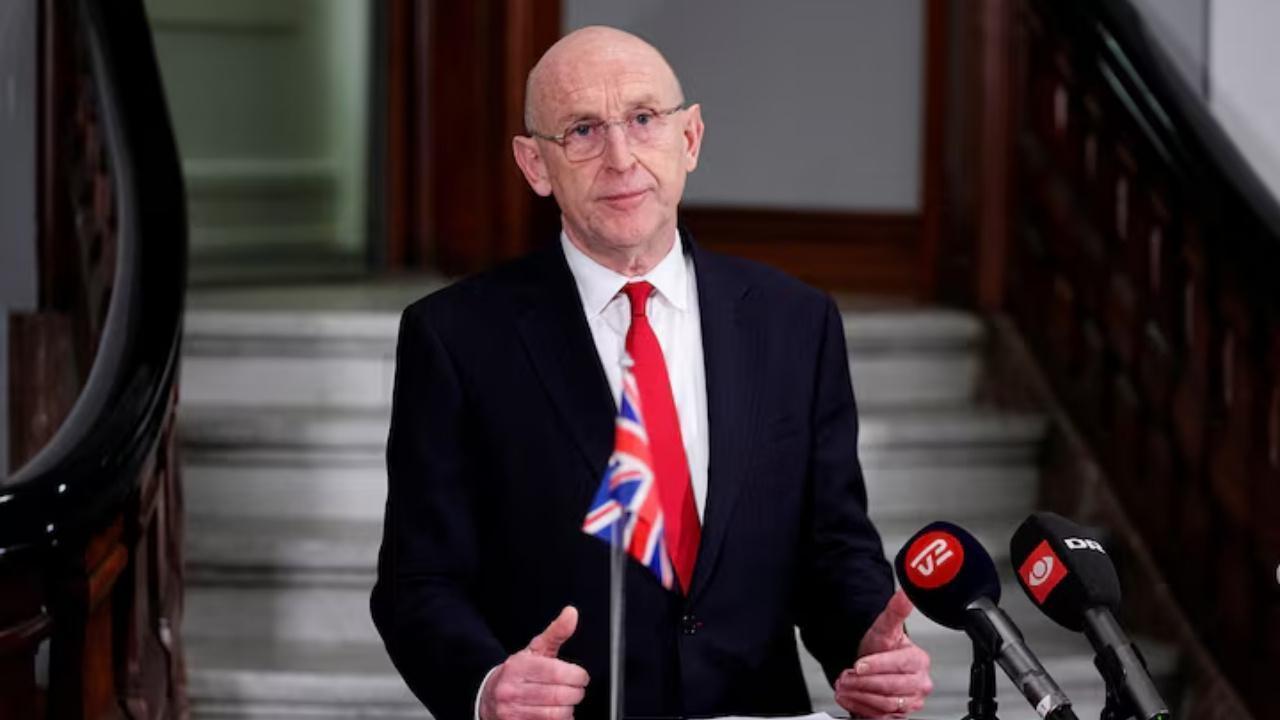You have not yet added any article to your bookmarks!

Join 10k+ people to get notified about new posts, news and tips.
Do not worry we don't spam!

Post by : Anis Farhan
For over a century, the boom-bust cycle has been a central theme in global economics. From the roaring twenties to the dot-com crash, the pendulum of financial fortune has swung dramatically. But according to BlackRock, the world’s largest asset manager, those days may be behind us. Their analysts argue that a new market regime is emerging—one characterized not by sharp rises and collapses but by sustained unpredictability, moderate growth, and structural shifts. So, what does this mean for investors navigating today's markets?
The boom-bust cycle refers to periods of economic expansion (boom) followed by contraction (bust). These cycles were often driven by aggressive monetary policy, exuberant consumer spending, or speculative asset bubbles. BlackRock, however, now believes this cycle is no longer applicable to modern financial systems.
Several structural changes are driving this shift. Central banks have grown more cautious. Governments are more proactive with fiscal support. Globalization is evolving into “slowbalization,” with supply chains diversifying and national interests gaining precedence over pure market efficiency. These trends point toward a more stable—though still volatile—market climate, where extremes are softened, and cycles may flatten into a longer, drawn-out trend.
BlackRock’s key insight isn’t just about stability—it’s about transition. They refer to the current period as a “regime shift,” where past playbooks no longer apply. Investors can no longer rely on buying the dip, trusting in central bank bailouts, or assuming cyclical recovery. Inflation may remain sticky, interest rates might not return to near-zero levels, and technological disruption will be relentless.
This new paradigm encourages investors to reassess risk and return expectations. The idea of "moderation" replaces both euphoria and panic. That’s not to say there won’t be volatility—just that it may not follow old patterns.
A major component of this shift is inflation. For over a decade following the 2008 crisis, inflation remained low across much of the developed world, allowing for loose monetary policy. But post-pandemic realities—supply chain rewiring, rising wages, geopolitical instability, and deglobalization—are keeping inflation elevated.
BlackRock believes inflation is now “structurally higher.” It won’t spike like in the 1970s, but it won’t disappear either. This changes the entire logic of investment. Bonds, once a safe haven, may no longer protect portfolios in inflationary times. Equities will need to show real, not speculative, growth. Asset allocation must shift to hedge against this new norm.
BlackRock also points to the increasing fragmentation of global trade. Decades of efficiency-driven globalization are giving way to more politically motivated supply chains. This “slowbalization” sees countries building redundancies in their sourcing, reshoring industries, and tightening controls on strategic resources like semiconductors and critical minerals.
As a result, multinational corporations are facing new risks. Political instability, tariffs, and supply chain disruptions are the new reality. Investors must now factor in geopolitical risk as a permanent element in financial analysis—not just an occasional disturbance.
Another driver of the new regime is the speed and scale of technological transformation. Artificial Intelligence, automation, and data-centric business models are not just enhancing productivity—they’re reshaping industries entirely. Companies that fail to adapt are rapidly becoming obsolete.
BlackRock suggests that investors should focus on sectors with structural tailwinds—like clean energy, semiconductors, and biotech—where innovation drives sustainable growth. It’s not about chasing hype anymore; it’s about identifying long-term winners in a complex, evolving landscape.
From 2008 to 2020, monetary policy was the main lever in managing economies. Central banks slashed interest rates, bought bonds, and stabilized markets during crises. Investors came to expect this "Fed put"—an unspoken guarantee that central banks would step in whenever the market stumbled.
But BlackRock warns that central banks now have less room to maneuver. Interest rates are higher, and inflation constraints make it politically and economically difficult to implement aggressive stimulus. Investors must now brace for more independent, fundamentals-driven markets where policy won’t save them.
In this environment, traditional investment strategies need a revamp. BlackRock recommends a more diversified, nuanced approach:
Greater exposure to real assets like infrastructure and commodities that perform better during inflationary periods.
Focus on quality stocks with strong balance sheets and consistent cash flow.
Decreased reliance on bonds as a hedge against equity risk.
Increased attention to geopolitical and regulatory risks.
Moreover, asset managers should consider adding thematic exposure to megatrends like decarbonization, digital infrastructure, and demographic shifts. These trends cut across sectors and geographies, offering long-term resilience.
For everyday investors, the end of the boom-bust era may seem abstract. But it has real implications. Portfolios that thrived in the 2010s—heavy on tech, light on inflation hedges—may struggle in the current climate. Passive investing may not outperform active strategies like it once did.
Retail investors must now do more due diligence, think globally, and factor in long-term risks like climate change, AI disruption, and policy shifts. Financial literacy becomes not just useful but essential. It’s a time to be selective, patient, and realistic.
Investor psychology is also evolving. The fear of missing out (FOMO) that drove meme stocks and speculative crypto booms is being replaced by cautious optimism—or at least, caution. Likewise, market downturns are no longer seen as end-of-world scenarios but as recalibrations.
This psychological shift supports BlackRock’s thesis: without the emotional highs and lows, markets may become more rational, more reflective, and more reliant on real data and strategy than on sentiment swings.
BlackRock’s own strategies reflect their outlook. They are adjusting their global allocation models, reducing U.S. overweight positions, and boosting exposure to private markets and emerging economies. Their focus is shifting from short-term gains to sustainable performance.
Other institutional players are following suit, increasingly focused on ESG, real assets, and regional diversification. This slow reshaping of global capital flows is subtle but significant, setting the tone for years to come.
Interestingly, this transition might favor emerging markets in the Global South. With diversification away from China, increased infrastructure spending, and a global push for resources like lithium and rare earth metals, countries in Africa, Southeast Asia, and Latin America could attract more capital.
BlackRock sees opportunity here, but cautions that political risk, currency volatility, and governance still matter. Still, for investors willing to stomach risk, the rewards could be substantial.
Assets like real estate and gold, often overlooked during the tech boom, are making a comeback. Real estate offers inflation protection and long-term yield. Gold and commodities provide hedges against market instability. While they won’t replace equities, they now play a more central role in diversified portfolios.
BlackRock urges a pragmatic view—there’s no silver bullet, just smart allocation and broad exposure.
BlackRock’s pronouncement may mark the official end of the simple market narratives we once clung to. In a world shaped by intersecting crises, innovation, and reconfigured geopolitics, there’s no room for outdated assumptions.
The future won’t be boom or bust—it will be blurred, bumpy, and complex. But in that complexity lies opportunity—for those willing to adapt.
This article is for informational purposes only and does not constitute financial advice. Readers are encouraged to consult with a certified financial advisor or investment professional before making any investment decisions. The views presented reflect market interpretations and are not direct representations of any organization.










Abhishek Sharma Hospitalised With Stomach Infection, Doubtful for India’s T20 World Cup Match Against Namibia
Indian opening batter Abhishek Sharma has been hospitalised with a stomach infection and is unlikely

Mass Shooting in British Columbia Leaves 10 Dead in One of Canada’s Deadliest Attacks
A tragic mass shooting at a high school and nearby residence in Tumbler Ridge, British Columbia, has

More Than a Ticket Out: How IPOs Are Redefining Value for Startups and Investors
In the evolving startup ecosystem, initial public offerings (IPOs) have emerged as far more than exi

Study Warns Using AI for Medical Advice Is ‘Dangerous’ as Users Get Inaccurate Health Guidance
A major new study reveals that artificial intelligence (AI) chatbots and tools may give misleading o

Top Sci-Fi Movies Streaming on Netflix This February: Must-Watch Picks for Genre Fans
A curated news-style guide to the best science fiction films currently available on Netflix in Febru

BCCI Central Contracts Shake-Up: Kohli, Rohit Moved to Grade B as Board Reshapes 2025–26 List
Virat Kohli and Rohit Sharma have been placed in Grade B in the BCCI’s 2025–26 central contract list